When this happened, I felt great shame and humiliation. I took a step way outside the box when I applied for another position at work. Gladys had decided to leave the company. She did the job of two people so there were two positions open. I didn’t have the qualifications to review contracts, but I did have the ability to make sure all the documentation was in place and set up projects and new customers. I got the job and they employed a part-time lawyer to review the contracts. My boss told me that this job was my baby. As time progressed, my job evolved into more than just setting up projects and customers and I became a glorified coordinator. All contracts were sent to me. If they were outside of our written contract format, I sent them out for review to the lawyer. Otherwise I sent them for signature from both the client and from the signer in our company; found out who was going to run the project; made sure that the credit check had been done on new customers; ensured that we had all the legal documents in place including the purchase orders and continued to follow up on these things until we had them all in hand. I closed projects out in a timely manner; followed the ‘exception to the rule’ protocol; identified situations where work had started without the proper paperwork; helped set up a way to track the amount used on a blanket purchase order as well as identify situations where work started without a purchase order or where the purchase order had been exceeded. I started to develop a way where we could track our bid estimate on a project against the actual results so that the engineers could see how accurate their bids were and make the required adjustments in future bids. I made all this visible to management and operations via a Sharepoint list. Management liked it. I worked closely with Sales, Operations, and the Finance Department. I received bonuses and a lot of praise for my work. Then a year and a half later, my boss called me up. “I wanted to tell you, before someone else told you, Gladys is coming back. They are firing the lawyer and she will be reviewing the contracts. The CFO didn’t want her to come as she had left the company twice, but our boss wanted her to come back because the lawyer isn’t able to look at the operational impact of the contract and so she has to do it and the turn around time is too slow”. My heart instantly lurched into my stomach. Gladys and I are very different. I am very detailed orientated; Gladys liked to cut corners to get things done on time and hated to have to do anything extra. She also didn’t make the sales people accountable and would move ahead without the proper paperwork in place. I knew this because I had often found myself in a position where a work order had to be invoiced without any pricing in place. Gladys also hated SharePoint. When I took on the job, I was given instructions to create different processes and to gatepost certain things; this I did. In developing the new processes, I found out from all the departments what their needs were. To do this, I set up meetings to discuss their requirements and develop processes that would work for everyone and with which my managers approved of. Everyone seemed really happy or so I thought. My boss said that he would have no trouble saying something to Gladys if she didn’t follow the processes and would keep her in check even though she was going to work directly with his boss and not him. I was really nervous about the situation but thought that if my boss would keep Gladys in line, then it would be manageable. Gladys was going to start just after Christmas. I tried to forget about the changes that were going to happen over the Christmas period. I was on vacation over Christmas and tried to keep busy so that I didn’t have time to think. All too soon, I had to return to work and face this new dynamic. It did not start off well. Gladys didn’t want to know about the new processes. She started doing the work that I did and I had no paper trail to know what was going on. By the end of the week, I was told that she was going to be my boss. Her boss said that we would make a good team. It had taken me a long time to get the confidence of my colleagues. Gladys had been well liked. I didn’t do things the same way as Gladys did. I was firm in keeping the processes as I had been requested to do. The processes kept people accountable. Gladys started to run me down in emails to colleagues saying that I didn’t know what I was doing; she wouldn’t follow the processes; she told me that Sharepoint sucked. She and I were duplicating the work and it was annoying the departments. I lost my authority as everyone paid more attention to what she said than following the processes. She called me up and asked me to talk to her about the friction that I was feeling. As I started to explain the processes, she talked over me and yelled at me to shut up. ‘Who the hell do you think you are?’ She yelled. I realized that this was not going to work; she was now in charge of my baby. I was being put back into a position of being ‘just a processor’; to take orders. I rang her boss up and said that this was not going to work. She said that she was aware that there was a problem going on and had an idea about another position for me. She just had to get permission from the CFO and HR before offering it to me. She received permission and I was offered a job as the Sales Tax Accountant. She asked me to attack the job with my usual enthusiasm. I can’t say that I was very motivated; I was humiliated by the whole situation. I was embarrassed; I was grieving a job that I had enjoyed so much and had put so much effort into. I wondered what I had done wrong. I knew of no other way to handle the situation; I had felt powerless. I was now in a corner. I was being trained to do sales tax by a bully who was very controlling, wouldn’t answer my questions, wanted me to do things by rote rather than by understanding, put me down all the time, criticized me, talked down to me and demoralized me. I was now on a team that was reactive rather than proactive and didn’t want new ideas or any contribution to improve processes. I was also in a situation where I was micro managed. I totally understood why the company needed Gladys’ expertise. However, bringing Gladys back totally ruined my career. I was surprised that they created a new position for me. The whole situation left me very confused for over a year. I am finally over my grief. I keep my head down. Do my job. Don’t interact much with anyone. My writing now provides the creative outlet that I had in my previous jobs. However, I still wonder, as I did throughout the grieving process, whether the whole idea to bring Gladys back again and the way it was handled, was a poor decision by management or what? What are your thoughts?
0 Comments
This is a little more painful to write about; fast forward one more year. I am now a third year senior at Fareham Park Comprehensive School, which now has some newer buildings. The dance and drama studio is built. The music rooms are ready to go. The gym is built. We have an all weather pitch, a track, tennis courts and many more facilities for physical education. We have a building for art, woodwork, metal work, sewing and home economics. A far cry from the one building and a couple of modular classrooms that we had two years earlier. Now that we have a home economics room, we have cooking on the schedule. This is definitely not fun for me. The time that stands out most is the day that we made bread. I have little recall of anything else so I assume this is the one time that we cooked and the rest was book work, but I could be very wrong there. A prelude to the bread story are the images of crowded hallways and stairwells where all the students of the school were changing classrooms, using the toilets, getting stuff out of their lockers. The stairs in particular were a source of consternation. Those girls would wait for me at the top of the stairs, As soon as I started on my way down, they would home in behind me and start to push me down, all the time laughing their heads off. It was hard to keep upright and not slip. I hated it. I had no idea what to do to help myself and to get out of the situation. It may only seem like a little thing, but I felt helpless. There were no teachers around. These girls were in my tutor group and they were also in my cooking class. Cooking became a big nightmare. There the girls would use wooden spoons to hit me when the teacher wasn’t around. They would laugh in a mocking way. Any type of reaction exasperated the issue. I felt stymied; powerless. So it was in this atmosphere that we had to make bread. There are just a few things that I remember about this bread-making activity. I remember the mixing bowl. I remember the yeast. This wasn’t dry yeast. This was fresh yeast. I remember that it looked dark and grey and pretty gross. We had to add it to our flour and use our hands to mix the dough mixture together. Then we had to knead it until the yeast was all absorbed. As I write this with an adult's perspective, something feels off about that yeast. So I read around and now understand that fresh yeast should look firm and moist, cream-colored and cool to the touch. If it is crumbly, dryish and dark in places it is stale. Apparently to use it, it must be added to liquid and mixed into the dough straight away. Here is what I also found on the internet concerning fresh yeast and the processes to activate it: https://m.wikihow.com/Activate-Fresh-Yeast In this article it demonstrated that yeast needs to be broken up into smaller parts. I was told to put my yeast and water straight into the bowl. I don’t remember it frothing up. The teacher was hurrying us along. I was taking longer than the others - not a natural cook, I’m afraid. I was kneading away. The yeast was not becoming absorbed into the dough. I think the teacher was pretty frustrated with me. She didn't listen to my explanation that the yeast was not amalgamating with the dough but she did come and help knead the dough and got it into the pan. At last the lesson was over. What a relief. My bread looked really pretty. Despite the events of the day and the ongoing bullying, I was pretty chuffed with my cooking success. At home, I was so excited as we were going to eat it as an accompaniment to our dinner that evening. I eagerly watched as my mum cut into the loaf. “Eww! Yuck!” My Mum exclaimed as she cut the loaf in half. My heart sank. “What’s wrong?” I mumbled. “Look!” She said. She turned around from the kitchen cabinet where she was cutting, holding the two halves of the bread in her hands. I looked. Inside each half of the loaf there sat a dark gray piece of yeast. My mum started to laugh. I let her know how I had trouble mixing that yeast into the dough and how the teacher had helped me. I then laughed with my mum although my insides were empty. When I could, I left the room and went upstairs to my bedroom where I closed the door and cried. My daughter is a master bread maker. She makes the most gorgeous and succulent bread. Her favourite receipe is found at: https://weareeating.blogspot.com/2008/01/whole-wheat-bread.html?m=0 Here is the receipe that my friend gave me a few years back. I usually use this one when I make bread now: Bread Ingredients: 10 cups whole white wheat flour; 2/3 cup honey; 6 cups of water; 2 tbsp yeast (dried!); 2 tbsp salt: 3/4 cup oil; 2-3 tsp gluten; 2 tsp lecithin. Optional: 1/2 to 1 cup ground flax seed substituted for 1 cup whole wheat flour. Method: I usually use a bread maker these days. I adapt the quantities of the ingredients accordingly (I do like to add the ground flax also) and follow the instructions of my bread maker.
During a trip back to Minnesota last year for training on my new job, my trainer whispered conspiratorially, that she thought our manager gave her work, she believed her manager should do. “I’m not the one who has to write the reports”, she said. Earlier in the day, she had spoken to me not so quietly, that the previous payroll person was just awful at the job. “I always had to correct him”, she exclaimed. “He just couldn’t do it. I had to keep telling him the same thing over and over again!” She also told me that the new payroll person, wasn’t picking up the role as quickly as her past experience indicated she could. I didn’t respond to any of her comments; I should have come back with something a lot stronger than silence; my mind wasn’t so quiet. I knew the previous payroll person; He had left the company because of the way my trainer had treated him for the past eighteen months. She had been demoralizing him and criticizing him constantly; in a state of anguish, he finally resigned. He had told me that he really liked the company and the other people that he worked with, but just couldn’t take any more from our trainer. She had made his life unbearable and caused him so much stress and degradation. I was quite astounded that she would also say something about her manager; I believed they were pretty cozy. I learned a long time ago when I lived in Climping (outside of Littlehampton in West Sussex) never to believe what another person tells me about someone else. I was serving in a church leadership position and needed to find someone to oversee the homemaking meeting for the ladies at church. I felt inspired to suggest a particular lady’s name; I will call her Lynn although this is not her real name. Lynn accepted the call to serve as the Homemaking Leader and I worked closely with her. When she was called, I was approached several times about Lynn, with people telling me to be careful as she was a terrible gossip and very unreliable. This information did affect my relationship with her at the beginning. However, I learned very quickly that she was not like that. She was such a sweet lady and would do anything for anyone; she also never talked badly about anyone in my presence. After this specific learning experience, I vowed that I would make my own mind up about people and not listen to what others say. On that trip to Minnesota, I had been working twelve hour days without a break. The day before I flew back home, I took a lunch break for an hour with one of my friends from work, who had been brought into town at the same time. It was nice chatting with her and catching up with each other’s news. When I got back to my desk, I grabbed some papers that I wanted to scan in, so I had access to them when I got back to Utah. Whilst I was at the photocopier, I heard my trainer say to my manager in a surreptitious manner, “She’s back!” That just confirmed to me that the trainer was also talking behind my back, in a derogatory way, as she had done about our manager and the two payroll people. This behaviour is a good example of duplicity - when a person talks about somebody who isn't present, in a critical and demeaning way - but wouldn’t dream of saying the same things to the person if they were there. It is guaranteed that an individual who exhibits this type of behaviour with you, will be saying things about your weaknesses or other untruths to someone else, when you are not there; this is the opposite of integrity. Having integrity means being loyal to those who are not present. In these types of situations, one should defend those who are absent. When you defend these people, you build trust with them. My husband is a very good example of this. Him and his first wife are divorced but he never says a bad word about her; he never runs her down. I know that he will never talk badly about me to someone else, even if we have had a disagreement. In an earlier post, I talked about the acronym of ‘HARD’. This stands for: Honest Appropriate Respectful Direct I spoke about how it was hard for me to be ‘Honest’ and ‘Direct’. I particularly find confrontation and speaking about my feelings difficult. This amounts to dishonesty as I am not being honest due to omission; it also leads to being just like my trainer. I won’t tell the person that I’m upset with them, but I will vent to my husband or a close friend. I do not see much difference between that and the behaviour of my trainer. I am a great fan of Stephen R. Covey and reading his book ‘The 7 Habits of Highly Effective People,’ about sixteen years ago really helped me put all of the pieces of the puzzle together. He says in this book that ‘Integrity includes but goes beyond honest. Honesty is telling the truth - that is to say, conforming our words to reality. Integrity is conforming reality to our words - namely, keeping promises and fulfilling expectations’. He further extrapolated “Integrity also means avoiding any communication that is deceptive, full of guile, or beneath the dignity of people. ‘A lie is any communication with intent to deceive,’ according to one definition of the word. Whether we disseminate with words or behaviour, if we have integrity, our intent cannot be to deceive.” (Pg 195 and 197). Instead of remaining silent when my trainer was sharing information about my manager and the payroll personnel, there is an alternative choice. Stephen Covey puts it like this: ‘... Suppose you were to start criticizing your supervisor and I basically told you that I agree with the content of some of the criticism and suggest that the two of you go directly to him and make an effective presentation, on how things might be improved. Then how would you know, what I would do, if someone were to criticize you to me behind your back?” This is something for me to seriously consider doing when these circumstances present themselves again. That way I will be ‘honest’ and ‘direct’. This will take great courage but it will help me to be congruent with myself. This is what I need to aim for. It is easier to take the course of least resistance: to belittle, to criticize, to betray confidences, to gossip about others behind their back. This is also a form of pride. One form of pride manifests itself when one seeks to build oneself up by pulling another down. Belittling, criticizing and gossiping function to knock the person it is aimed at down; at the same time aggrandizing the perpetrator. Pride is really destructive and possessing, it is the means of destroying an individual, a family, and a society. When one is seeking to build oneself up at the expense of another there is no respect for the other person; there is no love. Stepping all over someone to gain respect or success is detrimental and self-sabotaging. How can one trust a person who does this? The way in which you treat a person says a lot about you. It shows whether you can be trusted or not. What I learned from my parents was to have values and to make choices in my life based on principles. When I interact with any people, I need to do so by maintaining the same set of principles across the board; I wish to be a person who has integrity. There are some cracks in my armour as I have just discussed and my goal is to close up these weaknesses by learning to be honest and direct with those that I associate with. It is a work in progress, but the most important thing is to be moving in the right direction. [email protected]
Quote for the Week I have seen the following quote doing its rounds on Facebook the past couple of months. It seems quite appropriate! “When a toxic person can no longer control you, they will try to control how others see you. The misinformation will feel unfair; but stay above it, trusting that other people will eventually see the TRUTH, just like you did”. - Anonymous [email protected]
So it’s been a tough few weeks emotionally; already feeling tender from the events of the past year, any other incidents just seem to rub me up the wrong way. Three separate incidents happened over the past month each sharing a common thread of being ‘left-out-of-the loop’. The decisions that were made affected my work description and processes, so not really something I should have been left out of. It would have been nice to have been involved in the discussions, but if that wasn’t the plan, then I think it was quite essential to have been informed about the decision, rather than finding out accidentally and realizing that others knew and I didn’t. Being included in the discussion would have been beneficial for me, because I am a team of one, as they told me when I started this job a year ago. “We would like you to run with this job, with the same enthusiasm you have, in all your other positions,” they said. ‘It’s your baby and you can do whatever you need, to be able to do the job.” So changing my responsibilities and processes without my involvement, totally didn’t meet with my expectations. This shouldn’t have come as a surprise to me; I have worked in this company long enough to know, that the exceptions to the rules are the norm. However, to me these two types of communication are conflicting and confusing, as well as embarrassing and upsetting. Besides being hurt and disrespected by being left out of the conversation and not being told of important decisions that affect my processes and how I interact with others, with regards to those processes, I felt invisible, unimportant, humiliated, frustrated and demotivated. Since I am intrinsically motivated to do my work, these feelings work against the sense of ownership of my job and, therefore, my efficiency and production. Having experienced events that my former manager said ‘really stank’ last year and then the emotional abuse from my trainer in this new job, for about ten months, these more recent communication issues lead me to jump to those thoughts again, believing it is a set up to make me leave. Unfortunately, the sum total of these events have almost destroyed my confidence and have left me wondering what is wrong with me - hence my decision to visit with a therapist to get a reality check and to arm myself with tools to move forwards. If I don’t learn these things, then these situations will follow me wherever I go. I have been unable to see my therapist for a few weeks - she is pretty popular! So being distressed about these events, I turned to ..... the internet. Yes, I know, not always the most reliable source of information! When I read things on the web though, I do try to be discerning, discovering who has sponsored the article and look to see what truth I can gleam from each one. I also like to see if the accounts match my principles and values and are inline with eternal truths, that I find in the scriptures. I came across two articles about ‘being kept out-of-the-loop: • “The Hidden Dangers of Leaving Someone Out of the Loop” by Heidi Grant Halvorson. • “Are you being paranoid about being left out of the loop at work?’ by Allison Hirschiag. I resonated more with Heidi’s report, than I did with Allison. I felt minimized by Allison’s words, perhaps because the title and contents of of her writing talks about paranoia and I need validation and an understanding of the situation. To summarize Heidi’s article: First of all it identified that my feelings are reasonable and normal. ‘You [can] expect the excluded person to be, at the very least, a little annoyed’. She said research shows that leaving someone out of the loop, undermines the four fundamental needs: 1. The need for belonging and connecting to others; 2. Self-esteem; 3. The need for a sense of control and effectiveness; and 4. The need for meaningful work. I would probably extend the definition of these four fundamental needs using the six needs of ‘certainty/comfort;' ‘variety;' ‘connection;' ‘significance;' ‘growth;' and ‘contribution’ identified by Derek Doepkoer in ‘The Healthy Habit Revolution.' These needs drive our behaviour by giving us emotional rewards. In essence: 1. The need for belonging and a connection to others; 2. Self-esteem/significance; 3. The need for control and effectiveness or, in other words, certainty and comfort; 4. The need for meaningful work which includes variety, growth and contribution. Studies also show that this leaving someone out of the loop communicates rejection. ‘Human beings are acutely sensitive to social rejection and ostracism’, writes Heidi. It also generates a perception of low status or standing within the group. Along with the rejection and the perception of low status, the behaviour has the following consequences: • A loss of trust; • A loss of loyalty; • A loss of motivation; and • A loss of connection between a boss or colleagues. Heidi further expounds on whether or not leaving someone out of the loop was an intentional or unintentional act, a person may still feel ostracized because if they were respected or important to the other person, they would have remembered. Heidi advises managers to think long and hard about these issues. If they plan to intentionally leave someone out of the loop, they should assess the risk of short-term gains, over the longer and more damaging psychological damage that behaviour inflicts and the resulting loss of trust, cooperation, loyalty and motivation. As much as Heidi addresses the manager’s responsibility, in choosing what action to take regarding this phenomenon, Allison focuses more on the recipient. She advises them to step back from the situation and to reassess it from a different paradigm. She suggests that the receiver takes time out, to make sure they are physically fit and emotionally in control, so that their outlook is not distorted. I think this is good advise as one doesn’t want to act in the heat of the moment. It is better to be proactive than reactive. Once time has been taken to assess one’s outlook, if the circumstances seem to be the same, Allison recommends talking ‘to a confident at work (or a career coach) ‘ to see if these incidents should be investigated further. Allison proposes that an option could be to talk to your boss, but with discernment, as to what you should bring up. Alternatively, one could let it go and learn to live with uncertainty. I think that the latter is pretty hard to do, as it violates the need for a sense of control, effectiveness, certainty or comfort. One has to continue to work in a psychologically damaging atmosphere. Finally, Allison proposes that the recipient has a backup plan and prepares for engagement in another job. In Allison’s article, there was only one affirmation for the recipient’s concerns, regarding being left out of the loop. She cited that ‘studies at Harvard University have shown, that anxious thoughts can have a negative impact on your productivity - which could lead to you actually losing your job’. However there were four negative pronouncements. She states that the recipient should leave paranoia at the door. To me, to address the recipient’s feelings as paranoia is not very validating. Yes, one becomes anxious in these situations, but to suggest that one has a mental disorder due to poorly executed management techniques, seems to be adding insult to injury. The word ‘paranoia’ is a very strong word with highly negative connotations. Allison states that leaving people out of the loop, is a common trigger sparking paranoiac behaviour in the office. She quotes Dr. Menard, who says that recipients ‘expect others to judge them as harshly as they judge themselves, yet they’re almost always wrong.' Being told that what I feel is wrong or that my perceptions of the situation are not valid, is degrading and demeaning. On the other hand, I think that Allison is trying to allude, to the extremes one’s thinking can go, especially if one is a perfectionist. Since I am a perfectionist, you can see an example of this, when I jump to the idea that the whole thing is a set up, to make me leave. I also feel that, in my case, being excluded from discussions for process and job changes, that were in the sphere of my responsibilities, devalues me as a person. It demonstrates that management does not think, that I could come up with a solution to the problem and that my opinions or insights lack value or are meaningless. It leaves me with a feeling that I don’t belong. I find the contrast between Allison and Heidi stark on the the reaction of the recipient. Heidi is saying that it is normal for a human to be angry in this situation, whereas Allison is saying when the recipient reacts, they go to the level of paranoia. Allison winds up her thoughts by concluding ‘If you consistently do good work and add value to the company, there’s often not much more you can do. For example, layoffs can happen for any number of reasons, few of which are directly related to your individual performance.' This really sums up the powerlessness a recipient can feel, when their managers make a habit of keeping them out of the loop on important decisions, meetings, changes to processes, etc. So having read these two articles, what did I learn and how can I apply it to my situation? I think that I rejected the paranoiac concepts. I actually think it is bad manners to not keep someone in the loop; I don’t care who it is. I also think it is poor management, creating a divisive atmosphere in a team. Good communication creates unity and increases productivity. As a recipient of the behaviour, I have zero control over the situation, except to exercise total responsibility for my behaviours and to prepare myself for different employment. Contesting the issues creates more conflict, especially when one is criticizing one’s own managers, who do not acknowledge their weaknesses or do not want to change. I fear drawing appropriate boundaries would probably lead to the need to seek other employment, but would leave one’s self-respect intact. As a leader and teacher in my family and also at church, I can make sure that I try to implement the good practice, of keeping those I interact with in the loop; I can focus on the good in others. I can respect individuals and our diversity. I can value all efforts that people make and can emphasis people’s potential and ability to grow. If I unintentionally mess up, then I can strive to make sure that the person I left out, feels respected and valued. In my efforts to keep and maintain unity in my family and within my church family, I can expect a high degree of bonding, loyalty, motivation and an effectiveness in our efforts to work together. [email protected]
Last time I wrote about the way things lie at work, I posed the question ‘Why not change my job?’ Yes, this is a question that I wrestle with constantly. There are three reasons that keep me in this job right now: Firstly, one of the biggest benefits, working for my current company is that I now work remotely for them. I used to work in the Minneapolis office when I first started. When my husband retired, we decided to move out to Utah so that we could see the grandchildren grow up. We knew that money would be tight and if we continued to live in Minnesota, then we would only be able to afford to go out to Utah maybe every other year. We so wanted to be a part of our grandchildren’s lives. We decided to take a leap of faith and move. If my company didn’t keep me on, the plan was for me to temp and get a permanent position that way. In Minnesota, there are staffing agencies that will place you into a permanent position for a fee to the employer. However, in Utah, they don’t have those types of agencies and prefer a temp-to-hire situation so that the companies here can see if you are a good fit. I approached my boss’ boss and let her know of our plans, asking whether she would like me to continue with the company as a remote employee. I had incorporated process improvements in my job, so that there was no paper involved and I could do the whole thing on the computer. She took it up with her boss who agreed to let me work remotely for three months so that we could get on our feet, with a new home and a job in Utah. We sold our house in Minnesota in a day to a cash buyer and had to be out in three weeks. We moved into our daughter’s basement temporarily and put most of our stuff in storage until we found a place to live. After being in Utah for three weeks, the Chief Financial Officer left the company and my boss’ boss called me to ask if I would like to stay on permanently; we were thrilled. Now knowing that I had permanent job, we looked for a house. It is a wonderful commute to my office. I love working from home, I am really focused and don’t get distracted; except for the past year, I didn’t have to put up with office politics; and I am more productive. The second reason for not changing my job is the financial aspect. There is quite a large salary disparity between the two states of Minnesota and Utah although the standard of living is no different. In fact, food and petrol seems more expensive here. The price of Minnesota housing dropped significantly from 2006 through 2014. We lost most of the equity in our house. Utah’s property prices actually remained stable during that time. My husband and I haven’t quite worked out why, such young people out here in Utah can afford these expensive houses; We certainly couldn’t. There is a high propensity of women staying at home with their children here too. Most couples have two cars. In the States, it is not easy to get around without a vehicle; You can’t really walk to the shops; everything is so big and spacious. Unlike England, the bus services and train services are not as prevalent. In Minnesota, for example, I didn’t even know where the train station was and never saw any signs to it, if it existed. So unlike hopping on a train to get from Fareham to York, I have no idea how one would get on the cross country trains out here. In Minnesota, for one job, I used to take a bus downtown, but it’s not like you could get on a bus and easily go from one town to another; I found the system very hard to navigate. So since my husband is now retired, my salary is important for us to pay the bills. Doing a similar job in Utah would reduce my salary by almost half. The final reason for trying to stick this job out, is because of bullying, this type of conflict follows me around. I have experienced it before in a couple of jobs out here. I do really well in my job for a few years and then another element (person) is introduced to the mix and I get targeted. So there is something in me that really wants to try and make this work. After a few more instances of poor communication and being left out of the loop the past couple of weeks, I’m not sure if I will succeed, but I want to give it one more chance. However, the relationships are pretty shot and I’m not sure if they are repairable. I feel that I no longer have any trust with the people involved and I don’t know how to rectify that since in my perspective, trust has to be earned. [email protected]
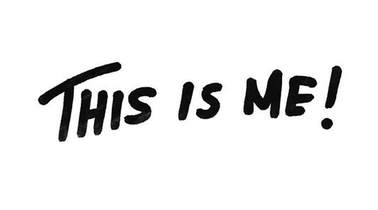 Change Me? No Way! So last time I wrote, I raised the question whether it was my own culture that led me to have very high expectations of people and their behaviours. I wondered if the world had changed from when we were brought up, or had the culture set us up for failure? Posing this question to my therapist, she said that if the principles and values didn’t work in reality, then yes, the culture is setting you up for failure. (She’s so good, she doesn’t criticize my crazy thinking!) However, she said it is more likely that your high values of loyalty and duty are the first things to signal a manipulator, who will then home in on you and exploit those values. All strengths have their flip side. So a sense of duty and loyalty can be a strength. When a manipulator, a bully, or an abuser sees that in you, they will then manipulate you, so that it becomes a weakness. Something for me to get my head around. When I have read self-help books or talked to people about emotional abuse, or bullying, they have all said ‘You have to change.’ I have sometimes felt very resentful about that. Why should I have to change? Why should someone else’s behaviour mean that I have to change who I am? Recently I read something in a book called ‘Boundaries’ by Cloud and Townsend that helped the lights go on. “You cannot change anything else: not the weather, the past, the economy - and especially not other people. You cannot change others. More people suffer from trying to change others than from any other sickness. And it is impossible. What you can do is influence others. But there is a trick; Since you cannot get them to change, you must change yourself .....” Oh no, here we go again, I thought, I’m being told I have to change myself. “Since you cannot get them to change, you must change yourself, so that their destructive patterns no longer work on you. Change your way of dealing with them; they may be motivated to change if their old ways no longer work.” So basically, what I learned that to do, is to change how I respond to them, so that their destructive behaviours no longer work on me! This validated my thoughts that the abusers’ behaviours were destructive. What I have to change, is my reaction to their behaviours. So this was most useful to me, as it actually defined a little more clearly what kind of changes I needed to make. I have one or two things that I have been working on in relation to this, but I’m sure I will discover many more on my journey. One of the things that I am trying to change is, how I view people in the working environment. I have a deeply ingrained sense of hierarchy and how I should behave to someone who holds a position. I tend to be very deferential to those in authority. My therapist suggested that I look at this differently - not to encourage disrespect or rudeness - but so that I can create a different paradigm to work within. Using the example of my boss or my trainer, she said that ‘they are no different from me - they are not better than me - they just have different responsibilities than I do at work.’ The other thing is, I have given myself permission to call them (or rather their behaviour) ‘jerks’ in my thought processes, when their behaviour towards me is demeaning; when they talk over me, when I’m asking a question or explaining a situation that they need to know about due their position; and when they withhold information from me. I think the word ‘jerk’ might be one of the Americanisms that I have picked up. I’m sure my dad would use the word ‘idiot’! I don’t usually like to think unkindly of people, but using the word ‘jerk’ is helping me obtain a better reality of the situation. (I so hope it doesn’t just pop out of my mouth when I’m speaking to them! That would be an interesting dilemma, that I don’t want to have to deal with). It is also helping me not to absorb their destructive behaviours as my fault. The other thing that I need to work on, is my communication. The rules that I have to practice have the acronym of HARD. Honest Appropriate Respectful Direct Communication is HARD. I don’t have a problem with ‘Appropriate’ and ‘Respectful’. I do have a problem with ‘Honest’ and ‘Direct’. ‘Honest’ is hard for me more in the realm of omission. It is hard for me to be confrontational and to say exactly how I feel. Unfortunately this weakness leads me to be passive aggressive - meaning that I won’t tell the person that I’m upset with them, but I would tell my husband or a close friend. This lets me vent and release my anger but it doesn’t really solve any problems. When my boss talks over me as I’m explaining something, it is hard for me to say ‘I feel that talking over me is rude’. I guess this is why ‘Direct’ is also hard for me. Ha ha -I am thinking that not only is it difficult for me to actually say this to her, I also think that she would still be talking over me when I said it, so I don’t have a window to say it anyway. Then there is the fear of being rejected or have some other verbal abuse come back from saying it - at which point I would probably hang up on her and lose my job. Why not forget the job? This is a very good question. I will leave my answer for another day .... [email protected]
 Upbringing! In reading Luke’s blog, memories were stirred. One of the things that came back was the culture in which I was raised. Having lived in America now for nineteen years and becoming partially assimilated into the Borg, it was nice to be able to identify with those values in which I had been raised. A few months ago, I finally started going to see a therapist to try and put my life back together again after the events of last year at work. It was my therapist that identified to me that I was being bullied at work. It is kind of interesting how this bullying follows me around. I, of course, had labeled it differently. There were two major parts to the events that happened. The first part I had thought it was poor management decisions. I thought the decisions were very unfair and poorly thought out. The second set of incidents that were happening I thought were abusive. I thought it was a scheme to get me to leave. Or could it be that people were so blind to the actions of this person. I felt controlled, put down, micro-managed, insulted, set up so that whatever I did was wrong. My husband had never seen me go to pieces like this. We had been married for eleven years and he had never witnessed me behave like this before. I was frustrated. How after all the work I had done to get my life together, could this happen yet again? My mother was frustrated when she came to visit and saw what a state I was in. ‘Why haven’t you gone to HR?’ She said. Why hadn’t I gone to HR? Well it was simply because HR does not represent the employees in America. HR is there to protect the employer. That is common knowledge in Corporate America. The second reason was, here we are again, how do you prove emotional abuse? At the end of the day, it would all come back on me - that there was something wrong with me. My husband got extremely exasperated with me as I vented to him frequently about new incidents. He wanted to protect me and was angry that I was getting hurt. He was also frustrated with my responses to the situation. Besides not sticking up for myself, he was irked by my continually expecting a particular response from the said persons. ‘Haven’t you realized that they are not going to change? They are not going to respond in the manner you want no matter how hard you try.’ So exhausted, I went to the therapist to try to figure out how to move forwards. This is my journey. Reading Luke’s blog and reliving my own culture, I just wonder if the way we were brought up led us to have these very high expectations of people. I have always thought people would be kind, truthful, help the underdog, be fair, execute justice, keep their word, acknowledge hard work and effort, be true, have integrity and so forth. Did the world change? Or were we just set up for failure? #Luke [email protected] A Very Clear Choice! I began attending Fareham Park School half way through my first year as a junior in January 1969. Those months were a blur; the only thing of significance that shone through was reading about the Griffins. I loved these books and they grabbed my attention. I believe I started a game on the playground, as I got bored at playtime. One had to travel only on the painted netball lines and could only change directions at a junction. When I played this with friends, one would have to try and catch the other person. I was in Mrs Harts’ class for the second year of junior school and have only two memories .... the blue National Health Glasses I had to wear to correct my stigmatism and the boy who sat next to me, who always seemed to step into dogs muck and then scrap it on the bar under the desk. It smelt foul and was very unpleasant, not just for me but for the rest of the class. I remember Mrs Hart getting very upset about the smell; we were told to own up to who had stepped in the dogs muck again; no-one put their hand up. So then there was the search at the end of the day; Mrs Hart went around table by table, searching and letting each table go; we were always last. The boy would get yelled at; maybe she wanted him to own up at the beginning. For sure after repeated performances of this, she would know who had done it? I would sweat it out, hoping that she wouldn’t think that I had done it (although I think I did do it once by accident). Funny how I would think I would be in trouble for something I hadn’t done. Maybe I got into trouble at home a lot, for things that I was supposed to have done? I do remember the boy’s name but I wouldn’t like to hurt his feelings. Life in Mr. Hebron’s class in the third year of junior school was going along well, bar the milk that we had to drink before going out to play. Oh that milk was so foul. It may have been cold when it arrived, but by the time we had to drink it, it was warm and oh it made me gag! I think it was the result of a National Programme to ensure good nutrition for all children. I was fortunate in that my parents were able to provide good food for my sister and I and that was one of their priorities. Other children were less fortunate; their parents had other values; the paycheck was spent down the pub, before the bills were paid and the family was provided for. The idea to help provide some of children’s nutritional needs in school with the Milk Programme and free school dinners, is admirable. I advocate the community helping each other and not deserting the people in times of need. Playtime was fun, with the other girls in my class. We played two ball on the walls of the school; continued to play the ‘line’ game on the painted netball courts on the playground; and learned how to clap our hands in different ways with each other, at the same time as singing small songs, such as: “A sailor went to sea, sea, sea, To see what he could see, see, see. But all that he could see, see, see, Was the bottom of the deep blue sea, sea, sea.” This one ditty was pretty apt, as we lived in community where a lot of the men were in the Navy. We were used to our dads going off to sea or being deployed in Scotland or Plymouth for periods of time. Then half way through the year, things changed. They changed because I made a choice. A choice that I would not change if I had the opportunity over again. A new girl came to school - half way through the year - just like I had in my first year at junior school. She and her family had moved into the area. Others seemed uncomfortable around her. She wore glasses and was socially awkward at the time. She sat at our table; I think I was conscious of how other people felt around her, but I did not feel that way. Something inside of me knew that something was going to change, if I continued to be friendly to her and become her friend; I felt like it was the right thing to do. One day we suffered at our table trying to down that warm, off-tasting milk, chatting, and then went out to the playground together. As we walked out, the girls that I had always played with, hindered our path and confirmed my gut feeling, that things were not going to be the same ever again. You know, I have never regretted that decision to make friends with the ‘unpopular’ girl. She was an excellent friend whilst we lived in Fareham and then went our separate ways after college. My only regret is having lost contact with her when I moved out to the States. I moved, then moved again and she was moving at the same time and we lost each other’s address. I wish she had written to me at my mum’s address; she still lives in the same home we moved into in 1969. Her parents had moved away from their home and I didn’t know where they had gone. My friend and I hung out together even when we weren’t in the same class. I went around to her house often. We would type on our typewriters writing story after story together and then reading them to each other. I was fascinated by the organ in her house. She lived near Blackbrook Park which was a decent walk from my home. It was safe enough in those days, that I could walk to her house by myself, at such a young age. There is no way I would ever have let my children do that same walk on their own, at the age I was doing it. My friend had two older sisters that were twins; they were about twenty years older than my friend. Both her sisters and her mum were very eccentric and flamboyant; her dad was a quiet man. It was quite intriguing for me to watch them interact and a little intimidating, as I was not used to the behaviours and didn’t really know how to respond to them. One of the things that I remember doing at school with my friend, was sitting on the field in the summer, near Fareham Park Infant School and eating our packed lunch. She always had two or three packets of crisps with her and was always generous enough to share with me. My mum only bought plain crisps then; sometimes cheese and onion or salt and vinegar but mostly plain. I recently realized that my mum actually likes plain, lightly salted crisps the best, that’s what she buys as a treat for herself when she comes out to stay with us. Now that I have twigged they are her favourite, I’ll get them in for her. My school friend introduced me to smokey bacon, prawn cocktail and Bovril crisps. It was very exciting for me to try these. Crisps are one of the things that I miss very much in the States. The chips out here don’t have the same texture or flavour. I remember sitting on the grass in the playing field, eating Bovril crisps with her, the day after my mum had the 'birds and the bees' chat with me, the night before. I was ten years old; I remember feeling quite bewildered and unfocused that day, staring at others playing on the field but not really seeing them; thinking what my mother had told me was quite bizarre and could it possibly be true? I think my mum had to have the ‘chat’ with me because that year, we had several movies at school ranging in subjects from accident prevention, germs, and having babies. Actually the films were really good and I wish my children had seen them. I still am conscious of not leaving things on the stairs in case someone falls over them going up or down and all the germs that one can leave on a dish cloth! My final year at Fareham Park Junior school saw me in Miss Trill’s class as a fourth year. Miss Trill, who was affectionately called ‘Bird Seed’ or ‘Budgie Seed’ was an older lady about forty (well that’s what she seemed to be to me). She had very dark hair and I was a little afraid of her. I learned a few years later that she had married, which was a great surprise to me. I must have had some presumptions about who is marriageable, for it to have been such a surprise. I’m quite embarrassed to have had those thoughts all these years later; why shouldn’t she have the chance to be happy? In that class, I remember a humanities system that we used. I can’t remember the name of it, but it was color coded. As you got through the levels in each color, you moved onto another color, with a greater degree of difficulty. You had to read the text on the card and then answer questions on it. It was nice to get onto the levels that were a little more challenging, but I also remember getting stuck and not having a resource to go to. Miss Trill was a little bit fierce. I remember once that we were being taught how to address envelopes. She taught us that it had to be the following format: Mr. and Mrs. initials surname number and name of street/ Town County Postcode We were tasked to address the envelope to our parents. I checked my work two or three times before I stood in the queue to show Miss Trill. I was pretty shocked and humiliated for her to tell me that it was wrong. Mystified I returned to my desk. I read it and reread it; I couldn’t see where it was wrong. I knew I had to go and show her again and this time try and ask her how it was wrong. Shaking, I stood in line; she was very quick to tell me that it was still wrong. I disliked the sharpness in her voice, but I had to ask; I knew that she would be annoyed. I plucked up the courage and asked her what was wrong with it. Sharply she looked at me and said ‘You have put ‘Mr’ twice;’ I was stunned; why hadn’t I seen that I had done that? I walked back to my desk very cross with myself, very embarrassed and humiliated. Let’s just say that Miss Trill’s voice was loud and sharp. How could I have missed that? Once back at my desk, I looked at the envelope again; I got ready to correct it, But I looked at it and looked at it; I could not see that I had written ‘Mr.’ twice. Then the light bulb went on! My dad’s initials are M.R. That’s why it looked like I had written ‘Mr’ twice. So now I have to line up again and let this scary teacher know that it is correct! I know I was shaking in my shoes ..... The fourth year also brought more recognition of being part of a team. In Fareham Park Junior School, every class in each year were divided into teams, which were named after the patron saints of Britain: St. Andrew, the patron saint of Scotland - colour blue; St. David, the patron saint of Wales - colour yellow; St. George, the patron saint of England - colour red; and St. Patrick, the patron saint of Ireland - colour green. Each of these patron saints have a day during the year when they are remembered. If you were in the Brownies or the Cubs, you could wear your uniform to school on those days. I was always in St. David’s house during my years of school. Some students were put in different houses during their sojourn there, but I was always in St. Davids and St. David is who I supported. We worked in teams getting house points for work that we had done. During my years, St. Davids and St. George were always the top two houses for points and were always in competition with each other each week. Even in sports we were in our teams. I kind of let my team down in PE as my arms and legs didn’t seem to coordinate, unless I was in the swimming pool. We played a lot of rounders. I remember sports day. I also played netball. The other wonderful thing that I liked to do in junior school was country dancing. We used to do it in class and then we had some extra time to do it at lunchtime; after everyone had their school dinner. Now school dinners, that’s another thing. I got chosen to help serve the school dinners; I loved it when I was putting the jam or sugar on someone’s rice pudding, but felt awful when I had to serve out the mince. The mince at school was terrible. I don’t know how they could cook it so badly; it made me retch; it was even worse than the warm milk! I helped serve schools dinners during my fourth year; during that time, the school kitchens were renovated and they had to bring in an outside caterer. Their food was totally amazing and I often would go up for seconds. Because I served school dinners, I also got to have one free. This meant a change from the sandwiches that I used to bring in - or worse yet, the cold toast and jam. I don’t know why my mum would think that cold toast with jam on it would be tasty. I have always liked hot toast and still do. Love my food hot not tepid! Or in the case of toast, cold ..... Anyway, back to country dancing; I loved to do the Victoria Reel and the other dances. Because I was tall for my age and there were a lack of boys, I often had to be the boy in these dances, but I loved to dance them; there was something satisfying about dancing with a group of people, in a systematic way. The final thing I thought I would mention about junior school was that we took the eleven plus. For those of you not familiar with this, there was an intelligence test that was given in the fourth year of junior school. From the results of this test, students were then filtered into three types of schools. If you did well in the test, you went to a grammar school when you left junior school. If you didn’t do well, depending on other aspects of the score, you either went to technical or secondary school for the next five years. I did read somewhere, that there was another test given earlier in junior school, so this combined score contributed to the decision of where, your post junior education would be. The tripartite education system had been existence since the mid 1940’s. I do remember sitting in the school hall taking this examination. Now I could get on my hobby horse about this, but I will leave that for another time. Suffice it to say, that I would have gone to the grammar school if they hadn’t built the new Fareham Park Comprehensive. I’m actually glad that I attended this school and this type of education, as it suited my learning style and my personality better. We were the first year through this school, being built around us as we went. This was really good for science, as teachers could dissect the rats they caught on the building site (so glad they didn’t ask us to do that)! We were quite fascinated with the pregnant rat. We also got to see a pair of cow’s lungs; and thank goodness for clarinet lessons - as I missed them cracking open the fertilized eggs and seeing the headless chick running around. I felt so sad for the chicks that died and the cut up rats. We had sky blue PE skirts, tracksuits, white collar tops for PE and black leotards for gymnastics and dance. We used one of the larger classrooms for PE; by the third year we had the gym, the running track and the dance/drama studio. Have to say that my time at Fareham Park Comprehensive School was pretty boring! Most of the time, I read the book that I had brought in, as teachers struggled to make my class quiet enough to teach. I was in class K through out my five years there; my friend was in P. The first couple of years there were fine, but by the third year, I was getting bullied. Girls from my class would wait for me and try and push me down the stairs and hit me with wooden spoons in cooking. My mum came up to the school and had a word with my tutor. She told them that I would only take it for so long and then probably lose my temper and someone would get hurt; she didn’t want me to get into trouble for that. I’m thankful for my mum’s confidence in me, but I wouldn’t have actually lost my temper; I wouldn’t have really known what to do in those kind of situations. I knew that I didn’t want to go to school and that I was frightened and had no control over the situation. I was so glad to move on from that school and go to college; academically it was more satisfying and I felt safer. Ironically, the girls that bullied me were the first ones to come to me for help when we were doing our ‘O’ levels and CSE’s. Sadly, the bullying has appeared in its multiple forms again and again in my life. Even this last year, it has reared its ugly head in the workplace. I know that wherever I go, it will happen again, so this time I am not going to run away from it and am endeavouring to change my behaviour in response; again, another clear choice. Hopefully, it will have excellent benefits as did my choice to be friends with the girl in my third year at junior school. #Fareham Park Junior School#
 A would like to thank Penelope Wren for her guest blog contribution, entitled 'A Very Clear Choice,' published in 'Spanish Views' today. Penelope's recollections on school life in Fareham, where we both grew up, has brought a lot of memories flooding back, as I recall my own school days, spent in the relative tranquility of this small suburban town on the south coast of England. Though not in the same year, we both attended Fareham Park Comprehensive at a time of great change. Penelope was lucky enough to be part of the first intake of pupils, I wasn't far behind. Both of us have very different lives to the ones we had, growing up in Hill Park. The connection we have is born from the words we write about our shared experiences. I believe it is important to keep memories alive. I am at an age, where my past is important to me. I really do look back at my school days with fondness now, despite the challenges I faced at the time. My life now is immeasurably different compared to forty plus years ago and I do find writing about my experiences rather therapeutic and life enhancing. Penelope has also highlighted workplace bullying in her introduction, something I am very familiar with. It is sad that so many people have to suffer the indignity that harassment and abuse brings. Penelope is lucky enough to have a supportive family, as I have an understanding partner; without a solid network both our circumstances could be very different. Thank you once again for your fantastic entry today Penelope; I hope my readers enjoy your entry, as much as I have. I look forward to hearing from you again, with more memories to share!
|
AuthorPenelope Wren Archives
September 2018
Categories
All
|











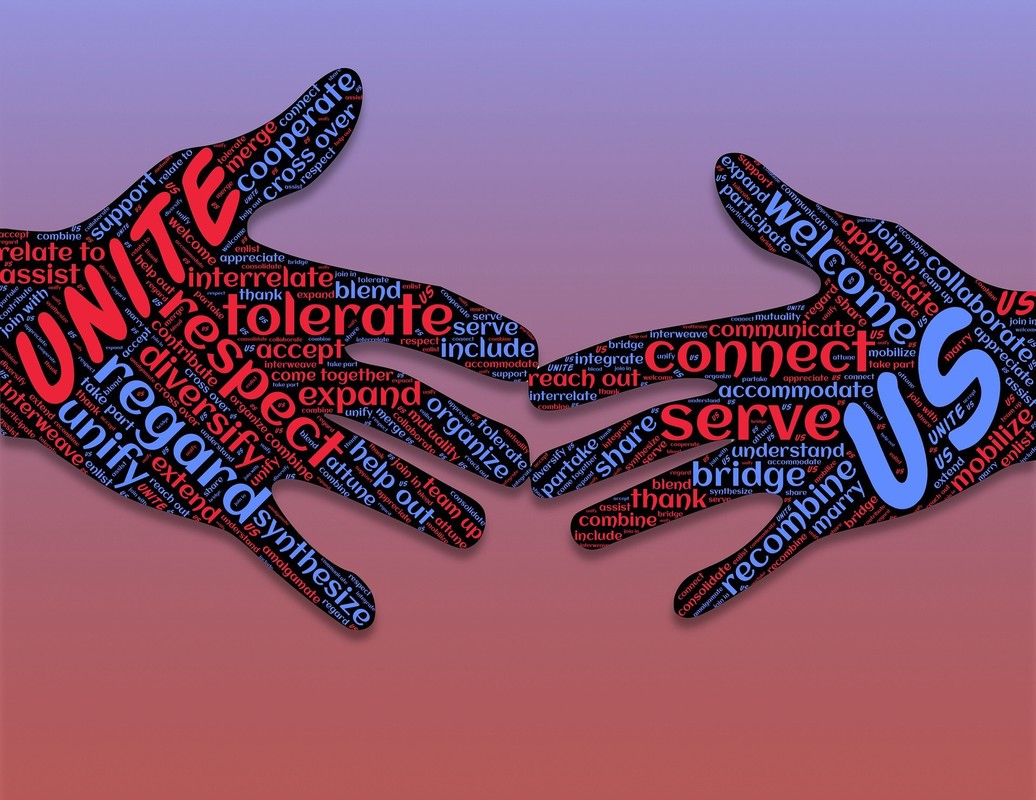
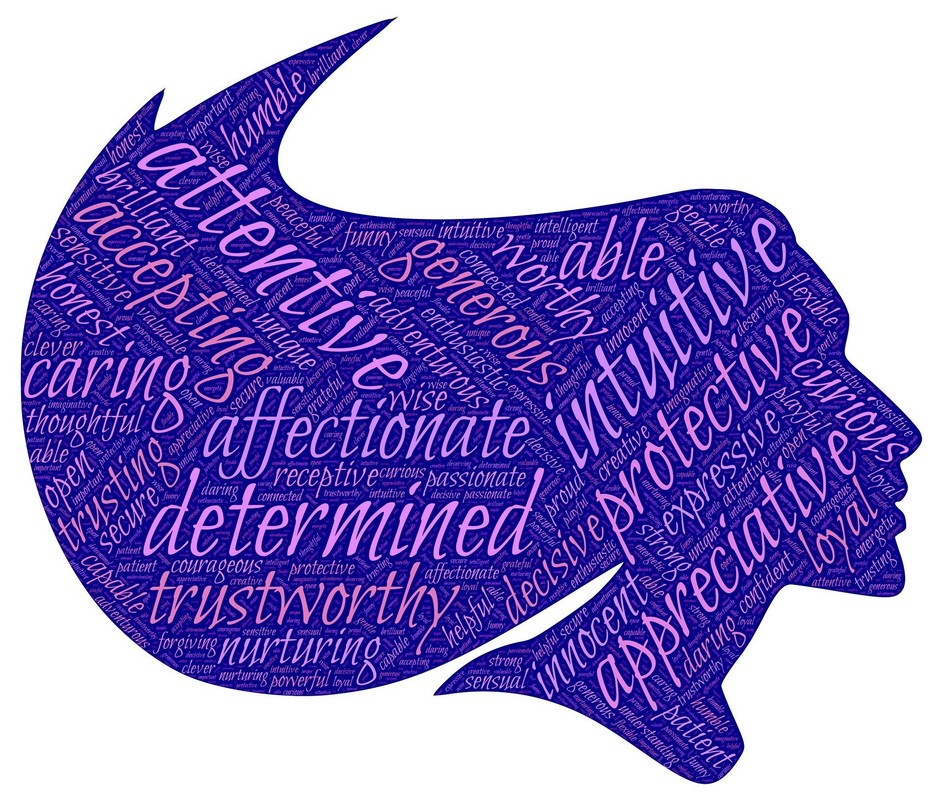




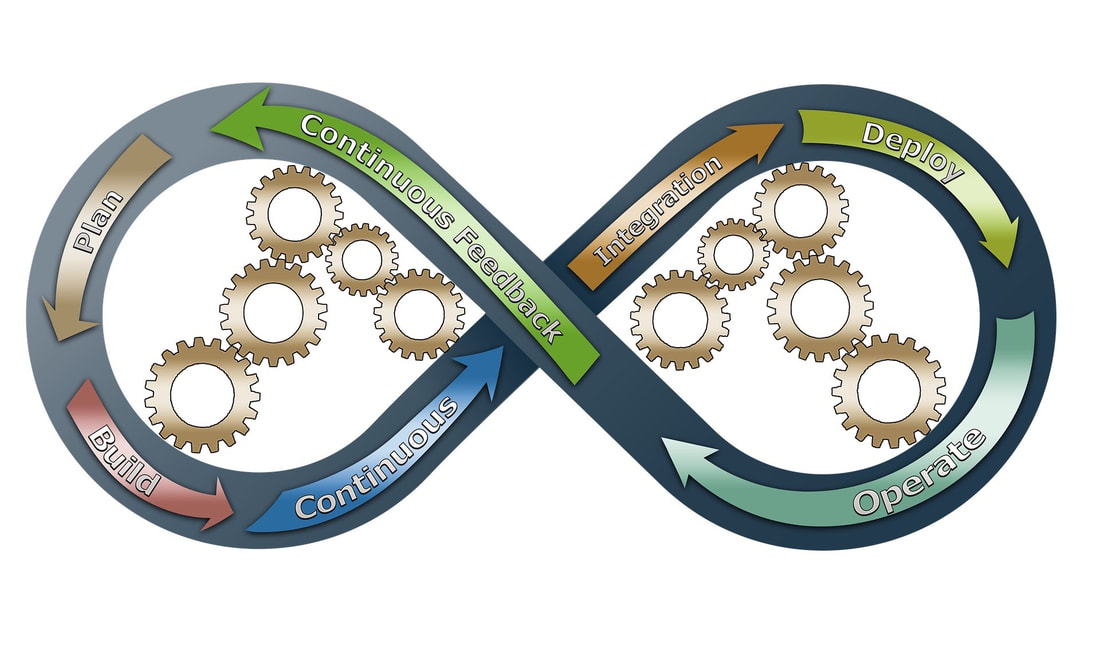





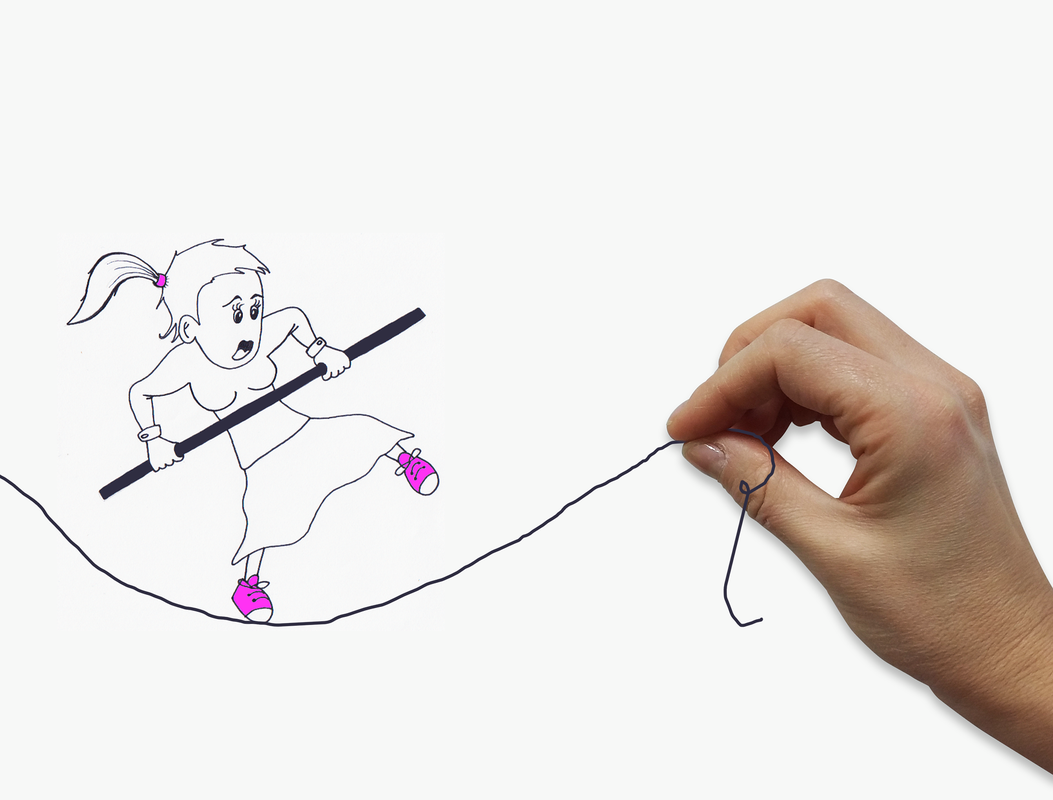












 RSS Feed
RSS Feed

